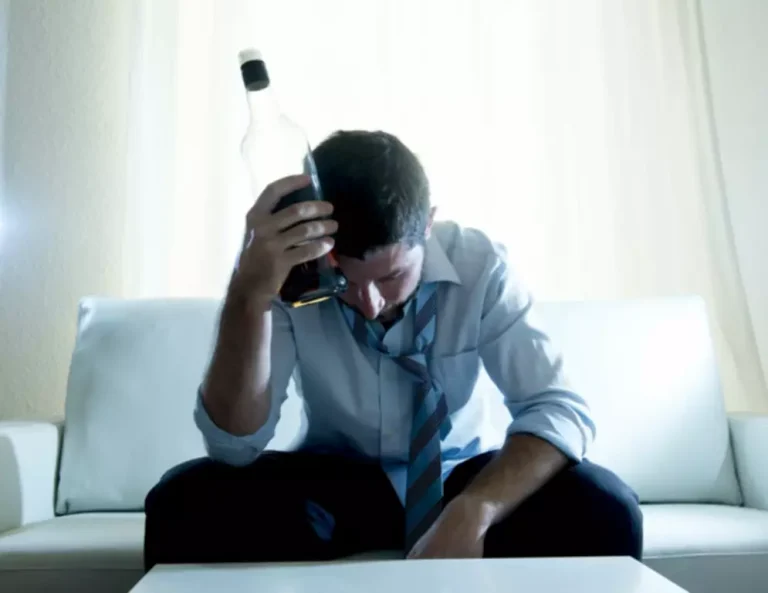Understanding the Different Stages of Alcohol Recovery

It’s important to remember that recovery is a unique and personal process, and each individual’s journey may vary. With professional guidance, support, and a commitment to change, individuals can move forward towards a healthier and sober life. The period between the third and twelfth month of alcohol recovery is a critical phase where individuals transition into active recovery and maintenance. This stage is marked by the implementation of lifestyle changes and the utilization of coping mechanisms to prevent relapse and support long-term sobriety. Embracing adaptive coping strategies, such as finding support systems and engaging in healthy activities, is essential Sober living house for managing stress and building resilience.
The Stages Of Alcoholism And Recovery

Setting aside time to reassess these elements ensures that the relapse prevention plan remains a powerful tool tailored to one’s current needs. Being vigilant about early warning signs is crucial in a relapse prevention strategy. Changes in mood, behavior, and overall engagement with recovery activities can indicate increased risk. Signs may include neglecting self-care, withdrawing from support, or experiencing heightened stress and anxiety. Recognizing these signs early allows individuals to implement coping strategies such as contacting support members or seeking therapeutic assistance, thereby preventing relapse before it escalates. https://ecosoberhouse.com/ Creating a relapse prevention plan involves a sequence of thoughtful steps.
How can someone write an effective relapse prevention plan?
They may experience negative consequences as a result of their drinking, such as strained relationships, declining physical health, or difficulties at work or school. It is during this phase that individuals may start to question their drinking habits and the impact it has on their lives. When someone reaches Stage Two, they are thinking about changing at least some of their habits within the next six months. They’ll be weighing the pros and cons of quitting and might be more receptive to information about their addiction than they were in Stage One. During this time, it’s helpful for loved ones to make themselves available for honest, nonjudgmental conversations.
Recognizing the Stages of Relapse
Unfortunately, treatment is often ineffective at this stage because individuals simply don’t believe they have a drinking problem. It’s unlikely that a person in this stage would even be interested in information about alcoholism. A robust support network is crucial for individuals recovering from substance use disorders. Support systems provide encouragement, accountability, and a sense of community, all of which are vital for maintaining sobriety. Having people to turn to in times of need can prevent feelings of isolation and provide reassurance during challenging times. Our team of experienced professionals provides tools to identify and manage triggers, develop coping strategies, and build a supportive network for long-term recovery.

Understanding the Triggers: How to Avoid Relapse in the New Year
- Maybe if more patients saw their addiction as being as serious as a heart attack, they would be more concerned about keeping up with medical treatment and therapy.
- During this time, it’s helpful for loved ones to make themselves available for honest, nonjudgmental conversations.
- They were able to distill these many theories down to six simple stages.
- There are inpatient and outpatient options, but an addiction specialist should determine the best level of care for you based on your individual needs.
When it comes to the opioid crisis, some addiction specialists have compared opioid addiction to HIV. The point is that HIV was initially a terminal disease with no treatment. The medical community considers it to be more of a chronic illness than a terminal one. With medication-assisted treatment, opioid addiction is also far less deadly. We should keep in mind that there is also a medication-assisted treatment for alcoholism.
- Detoxification can be done in a medically supervised setting, ensuring the safety and well-being of the individual going through the process.
- We also suggest developing new nighttime rituals that calm your mind and body before bed.
- As treatment progresses, the focus will turn from learning about the sober life to practicing recovery techniques and healthy coping strategies every day.
They may begin this stage by taking small steps away from negative habits. Researchingalcohol recoveryis also common and extremely helpful during this time. In fact, jumping into recovery without understanding what it entails can make it harder than it needs to be.

Post-acute Withdrawal Syndrome (PAWS)
Detoxification is a crucial step towards recovery, but it is important to remember that it is only the beginning. Following detoxification, individuals should continue with comprehensive treatment and therapy to address the underlying causes of addiction and develop strategies for long-term sobriety. The next stage, Stage 4, focuses on rehabilitation and therapy, which we will explore in the following section. It’s essential to seek professional help during this stage to stages of alcoholic recovery ensure a safe and effective detoxification process. Medical professionals can provide medications and support to manage withdrawal symptoms, making the detoxification journey more comfortable and secure. Once individuals recognize the need for change and accept the reality of their addiction, the next stage in the journey to alcohol recovery involves seeking help and treatment.
Alcohol withdrawal should only take place under medical supervision to ensure the most dangerous symptoms do not get out of hand. In some cases, a doctor can prescribe medications that ease the symptoms to make the process more comfortable. Detox or medication-assisted treatment are the best ways to get started on the road to recovery. The characteristics of the middle or “crucial” stage include extreme shame and profound guilt surrounding drinking.

The Benefits of Listening to Recovery Podcasts During the Sobriety Process
The recovery and rehabilitation stage involves treatment, therapy, and aftercare programs. Although you may relapse and start drinking again, these programs can help you transition to sobriety much better. Embracing a sober lifestyle involves making conscious choices to abstain from alcohol and adopting healthy habits that support recovery. It’s important to develop new routines and activities that promote physical and emotional well-being. By developing and incorporating these coping mechanisms into daily life, individuals can effectively navigate the challenges that may arise during their journey to sobriety.
Adresa
Hotel Korsal
Šetalište Frana Kršinića 80
20260 Korčula, Hrvatska-

-

Kontakt
Telefon: +385 20 715 722
E-mail: info@hotel-korsal.com

